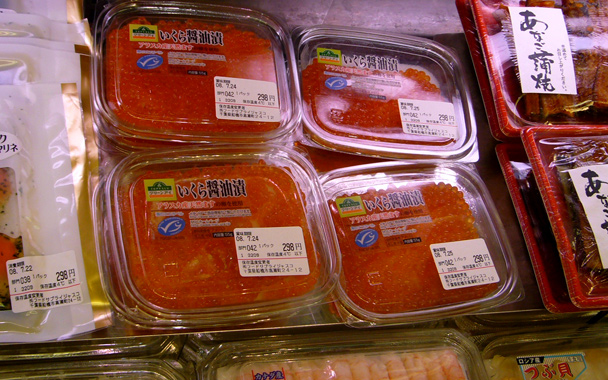Anyone who has seen the photographs of the warehouse floor covered with the beheaded corpses of threatened bluefin tuna at Tokyo’s Tsukiji fish market knows that Japan is far from being at the forefront of the sustainable seafood movement. So my hat is off to Kozo Ishii, who a year and a half ago opened a Japanese branch of the Marine Stewardship Council (MSC), an organization that certifies fisheries that operate in an environmentally responsible manner.
Speaking at the Seafood Summit last weekend, Ishii reported that the MSC has made measurable progress in encouraging the Japanese to think about the ecological implications of their cultural passion for seafood. It’s a change in attitude that could have effects far beyond the waters of Japan. Until the 1960s, Japan was a net exporter of seafood. Today, with more than half of its own fish stocks at low levels, it is the world’s largest importer.
As recently as 2006, there were no MSC-certified products sold in Japan. That number has risen to nearly 150, and three of the country’s four largest food retailers carry products bearing the MSC logo.
Recognition of the importance of sustainability is strongest among retailers, processors, and government officials. Consumers, used to shelves stuffed full of seafood selections at every neighborhood convenience store, are less aware. But there is also progress on that front. Ishii conducted a survey recently that showed only 8 percent of Japanese consumers were aware of the MSC. But when pollsters told them what the mission of the organization was, 98 percent said they would choose an MSC-blessed product.
Ishii has his work cut out for him.


